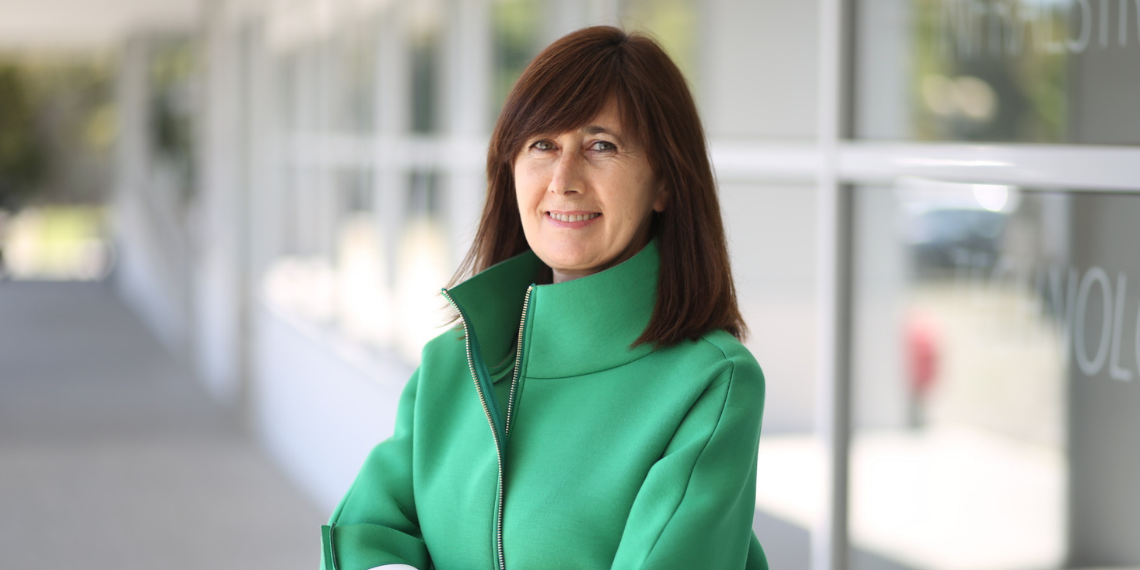After being invited to write the BIP editorial, right after my appointment to INESC TEC’s Board of Directors for the 2021-2023 triennium, the title “Women in Power” immediately came to mind. Certainly, this appointment holds a unique symbolism, and it is unavoidable to talk about the role of women in the management of INESC TEC. But that is not all.
Despite previous initiatives that have already resulted in a more balanced composition of the scientific advisory bodies – Scientific Council and Scientific Advisory Board – this nomination represents a small step towards promoting a greater gender balance in INESC TEC’s activities, and in the different decision-making levels of the institution. But it is also a sign that things are changing, which deserves to be emphasised.
In fact, not only is the percentage of women at INESC TEC a minority (24% of integrated employees, remaining constant since 2019), but their presence in management positions materialises mainly in support functions (service managers), remaining scarce in R&D – with honourable, yet rare, exceptions.
Concerning the Board of Directors, this has never happened since the establishment of INESC TEC – which, in this regard, does not diverge from most organisations, where men still occupy the top management positions. However, and assuming that women’s qualifications, skills and competences to hold these positions are equivalent to those of men, it is important to understand the reasons behind this state of things and why many women hesitate before accepting these positions – sometimes refusing them. It requires careful and long consideration, which does not fit into this editorial; however, it has been thoroughly studied and discussed in the most diverse fora, and I believe it should also be discussed at INESC TEC in the near future.
It is widely known that the world of research and development has been characterised by the low participation of women in general, with a particular deficit in the fields of engineering, computer science and mathematics (STEM – Science, Technology, Engineering and Mathematics), precisely where INESC TEC develops its activities. However, the reduced percentage of women in the higher education courses that constitute the institution’s recruitment base should not keep justifying the low presence of INESC TEC women researchers in top R&D and management positions, and measures should be adopted to counteract this “natural” trend.
“Increasing women’s participation and promoting gender equality in research and innovation is a priority under the Horizon Europe, the EU’s new research and innovation programme, which will require public bodies, research organisations and higher education establishments to have a gender equality plan in place to be eligible for EU funding”. If there were no other reason, this is important enough to support our efforts, in line with our associate University of Porto, and its ongoing H2020 project entitled “RESET – Redesigning Equality and Scientific Excellence Together”, whose main expected result will be, precisely, the Gender Equality Plan of the University of Porto.
Moreover, in the Communication for a new ERA for Research and Innovation (COM/2020/628 final), the European Commission states that “in concert with the Skills Agenda, the Communication on the European Education Area and the new Digital Education Action Plan, the ERA will strengthen the focus on participation of women in Science, Technology, Engineering and Mathematics (STEM) fields and foster entrepreneurship. There is also a need to address diversity by opening policy to intersections with other social categories, such as ethnicity, disability (including accessibility and inclusion) and sexual orientation, as well as gender-based discrimination and violence in R&I organisations”.
More comprehensively, the European Commission’s Communication “A Union of Equality” depicts the current situation in Europe and proposes the Gender Equality Strategy 2020-2025 (COM(2020)152 final), stating that “having both women and men represented is crucial for successful leadership“, considering the goal “Leading equally throughout society”. “Inclusive and diverse leadership is needed to solve the complex challenges that decision-makers face today. More inclusion and more diversity is essential to bring forward new ideas and innovative approaches that better serve a dynamic and flourishing EU society. Allowing citizens from all backgrounds to meaningfully participate in society is a necessary precondition for a well-functioning democracy and leads to more effective policy-making“.
Some progress has been made recently in order to raise awareness of the issue of lack of diversity in general, and in management positions in particular, not only in terms of gender, but in terms of nationality, ethnic origin, culture, people with disabilities, etc. In this regard, I was involved in the Working Group for Gender Equality (GTIG), coordinated by Professor José Manuel Mendonça, which broadened its scope to diversity and inclusion. The GTIG will, in the very near future, make a public presentation of the results of its activities, after which a Commission for Diversity and Inclusion will be appointed in order to implement the selected actions, with the gender issue as a priority.
In addition to these initiatives, INESC TEC has been reinforcing its ethical and social responsibility positioning, with the recent approval of the Code of Ethics by the General Council – which should now be implemented, hinging on the establishment of an Ethics Committee and the approval of the procedures required to operationalise it, conjoining with other processes.
Even though the areas of responsibility and missions of the newly elected Board of Directors have not been assigned yet, these questions will certainly pose challenges to this body in the mandate that now begins. As far as I am concerned, I will devote all my efforts and commitment to address them.
Maria da Graça Barbosa (Member of the Board of Directors)




 News, current topics, curiosities and so much more about INESC TEC and its community!
News, current topics, curiosities and so much more about INESC TEC and its community!